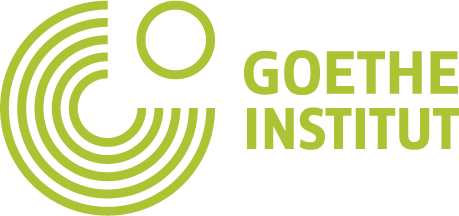A youth perspective with contribution of the European Youth Forum
An article by Vera Uvarova
What do you know about the European Year of Youth 2022? If it was not for being a volunteer at the Goethe-Institut in Brussels supporting the StartNet project, I might not be aware of it. A few words about me: My name is Vera, I am from Germany, just turned 19 and graduated from high school in 2021. I thus am a young European citizens between 15 and 29 years old and fall right into the target group of the European Year of Youth (also EYY 2022).
The European Year of Youth started with a promise from the President of the European Commission, Ursula von der Leyen: following tough years for young people during the pandemic, she vowed ”to listen to [the young people] as we are doing in the Conference on the Future of Europe, and we want to work together to shape the future of the European Union“. Her proposal for EYY2022 in September 2021 gave very little time for preparation, to develop a plan, for the stakeholders across Europe to be involved and mobilised. Essential steps to work on an ambitious list of goals for the EYY:
- Bringing the EU together with youth
- Equality of all genders
- Inclusive societies
- Information and constructive dialogue
- Mental health and well-being
- Advancing youth in rural areas
- Good work for all
- Good learning
- Spaces and participation for all
- A sustainable, green Europe
- Youth organisations and European youth programs.
Now we are more than half a year into the EYY2022. This calls for a mid-term evaluation. Where do we stand, what has been achieved and what still needs to be done?
What does the expert say?
To get to the bottom of the effect of the EYY so far, I interviewed Cláudia Pinto, Policy Officer at the European Youth Forum for Social and Economic inclusion. The European Youth Forum is one of the main stakeholders when it comes to youth policy in Europe with its 100 member organisation. Its goal is to represent the European youth and to make their voices heard.
A recent report of the European Commission concluded that 40 % of young people consider poverty and social inclusion as their biggest priorities, so they can be considered key success factors for the EYY.
Cláudia is mostly working on internships and the European Youth Guarantee. “All EU Member States commit to ensure that all young people under the age of 30 receive a good quality offer of employment, continued education, apprenticeship [and] traineeship within a period of four months of becoming unemployed or leaving education”, such is the definition of the European Commission.
Concerning the European Year of Youth, the Youth Forum states on their website that it “has to go beyond promotional activities and bring a positive and long-lasting impact on young people’s lives, today and in the future”.
What are the European Youth Forum’s objectives during this year?
The European Youth Forum set itself goals for this year. Amongst other, they want to ban unpaid internships and establish the Youth Test.
I had to ask Cláudia, how realistic these goals are and how much uptake there has been so far at the political level.
Cláudia expressed an optimistic view. If we take a long-term perspective, there have been so many technological, social and economic achievements that once seemed impossible. “They are all achievable, if there is the will behind it. We are here to continue working on them in the coming years. […] [O]ne year is not enough to dedicate to youth. Every year should be the year of youth.” So far, so good, but is there also enough political commitment? Young people are calling for change, now what we need is their representatives to make it happen!
Banning unpaid internships
On banning unpaid internships, Cláudia says that the European Commission is currently reviewing the quality framework for traineeships. If binding legislation is adopted at European level, it could be a step in the right direction to get young people into quality jobs. It still needs to be kept in mind that the current framework is a Council recommendation to the Member States of the EU and that the subsidiary principle takes effect, meaning all members are free to decide, whether they will actually implement said framework.
The European Youth Forum still works towards achieving fairer working conditions for young people this year. “We have a petition going on right now, calling for an EU directive to ban unpaid internships.” The campaign called “Can you afford to work for free?” wants to show that the problem is not the lack of access to internships, but a lack of opportunities because not everyone is in the position to work without compensation.
What else has happened so far?
There is also a lot happening with the other goals. Cláudia stressed that in order to achieve a long-lasting effect, it is crucial to highlight the importance of mainstreaming youth perspectives to all areas. Her colleagues are currently working on the so-called EU Youth Test. The EU Youth Test is a tool that would ensure that young people are considered in each and every new European legislative initiatives across all topics, assessing whether they may negatively impact young people, and then proactively addressing this through mitigation measures.
When evaluating the EYY, we have to consider both the creation and communication of new opportunities. The best internships imaginable with the greatest benefits and working conditions will not change a thing, if young people are not involved, nor aware. “We try to engage with our member organisations and with people from all sorts of backgrounds and strengthen outreach to those coming from more vulnerable backgrounds, and we value the input and contribution they bring into our advocacy work” Ultimately, everyone should be reached and presented with equal opportunities.
In addition, more action is needed to fulfil the promise of a more empowered European youth. If you would like to take action yourself, many initiatives to engage, to learn, work or volunteer abroad can be found on the European Youth Portal. The European Youth Forum’s website also has interesting offers, like the “Level-up” boot camp to boost skills and become a change-maker.
How can we evaluate the EYY?
So what is my take on the EYY 2022 so far? I feel like young people are calling for positive change. So far the EYY has done a good job at highlighting the issues of the youth at a political level, by bringing it to the people’s attention, through declaring the EYY.
Nonetheless, awareness raising is not enough. To achieve an actual, sustainable impact, there needs to be continuous action, one year even if packed with great initiatives does not suffice. One year is hardly enough time to deal with the problems young people are facing. It is crucial that youth policy is integrated in every aspect of politics. This requires even higher political commitment at European and national levels. How do we get there? With bottom-up mobilisation, by including young people, youth organisations and other youth initiatives that engage, mobilise and make their voice heard, media that report about #EYY2022, EU countries, regions that prioritise youth during the year and beyond. They all can push for change and contribute themselves. Together, we can make a difference - the impact will be more collective and sustainable.
This year has already created new exciting opportunities for young people but it has to continue. There needs to be a better broadcasting of those opportunities and they need to be available for everyone, not just for those, who can afford to work for free.
I personally prefer to think that we are more or less mid-way to success. Even though success and mid-way is hard to define, since there will never be a utopian future in which all the problems are solved. Nonetheless the mere existence of the EYY shows that politicians and the general public acknowledge that there are issues that need to be tackled. This simple acknowledgement itself is more that there has been in the past. Further, the various initiatives that were inspired by this year and which can be found on e.g. the European Youth Portal are already a win. Hopefully there will be more binding legislation soon, to back up the success politically and ensure a lasting impact. Overall, I can say that I am optimistic about the remaining few months of 2022, but let’s follow it closely.







